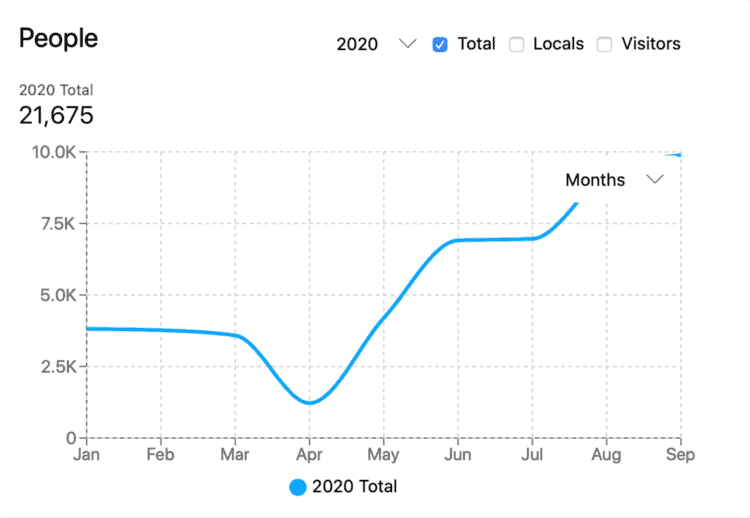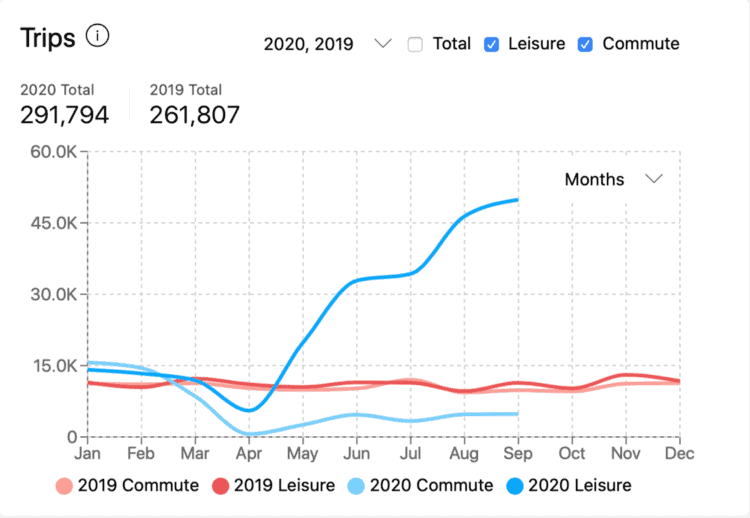While COVID-19 is causing fatalities across the world, it also brought to focus our frailties when it comes to collective action problems. There were forced lockdowns across India, starting late March, that highlighted clean air gains from the lack of vehicle emissions. Social distancing measures and closure of gyms kept people indoors, which meant lack of activity would take a mental and physical toll after a while.
Across the world this was a perfect opportunity to promote a clean, healthy and socially-distanced personal transport vehicle called the bicycle. The window of opportunity presented itself and some of us in Bengaluru grabbed it with both hands, and legs.
Strava is a tracking application used by sportspersons worldwide. Bicyclists can tag their ride as commute or leisure in this app. Strava has a platform called Metro, which gives insights to cities on bicycle-riding patterns and enables decision-making on infrastructure.
On our CycleToWork platform (a Bengaluru-based platform for employees to promote cycle commute in their respective companies), we found a drastic dip in rides in the high thousands per day from January, leading to practically nothing by March end. But something unique was happening on the streets that the Strava Metro data validated for us.

In March, just a few days after the lockdown, we launched #ReliefRiders where more than 80 of us delivered essential supplies on the bicycle to the elderly and vulnerable in Bengaluru. It was a huge success in bringing to attention the utility of the bicycle as an emergency response tool. People realised this was a good way to get back on their feet. Bicycle shops however, were still not an essential service and remained closed.
In April, we launched the #ResetWithCycling campaign and got permission to have cyclists exempted from having to show a travel pass. And in early May, with Unlock 1.0, cycle stores opened to roaring sales. Bicycles were flying off the shelves, with more than 200% sales being reported by many stores.
The Bicycle Alliance was launched soon after, in collaboration with bicycle retailers, to promote #VisionOneCrore. The idea of the campaign was to have one crore bicycles on the roads in Bengaluru.
You can see the pattern in the Strava chart, the explosion of people on bicycles. This doesn’t include people who don’t use Strava, which will be many times more.

What the Strava data also reveals is that thoroughout last year, leading up to the pandemic, commute and recreational rides were even (the two red lines). But with work from home being preferred in 2020, commute has decreased while recreational rides have increased exponentially (See blue lines).
We also notice, in Bengaluru, the bicycle trips remained fairly constant in 2019, instead of having seasonal variations. This shows there is a culture of bicycling that has set in, and that it’s not a hobby activity.
This is the perfect time to shift commute trends through infrastructure additions, to switch the new riders to work commute as offices will start opening up early next year. The pop-up bicycle lanes proposed on the Outer Ring Road (ORR is used by more than half the bicycling commuters on the CycleToWork platform), plans for developing a cycling district, 30 km of cycling lanes developed under Smart Cities Mission, and tenders for similar projects floated independently by BBMP, will add tremendous value if they can be completed by next March. It will be good timing, with the opening up of workplaces and probably the arrival of a vaccine.
[This article was first published on the author’s blog, and has been republished with edits. Read the original article here.]